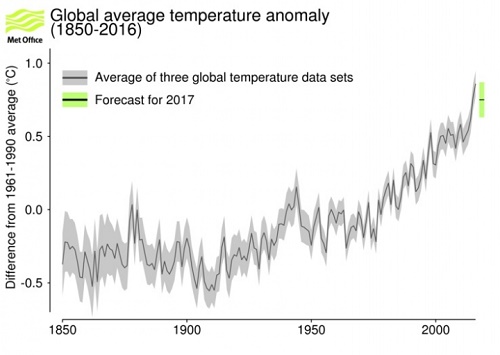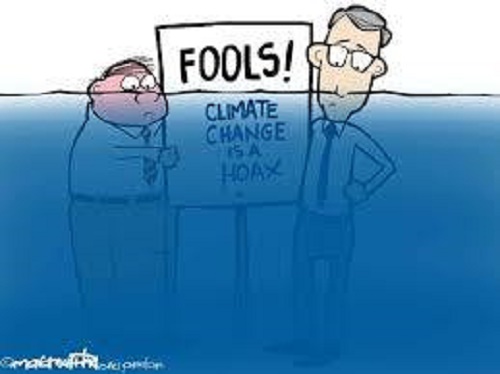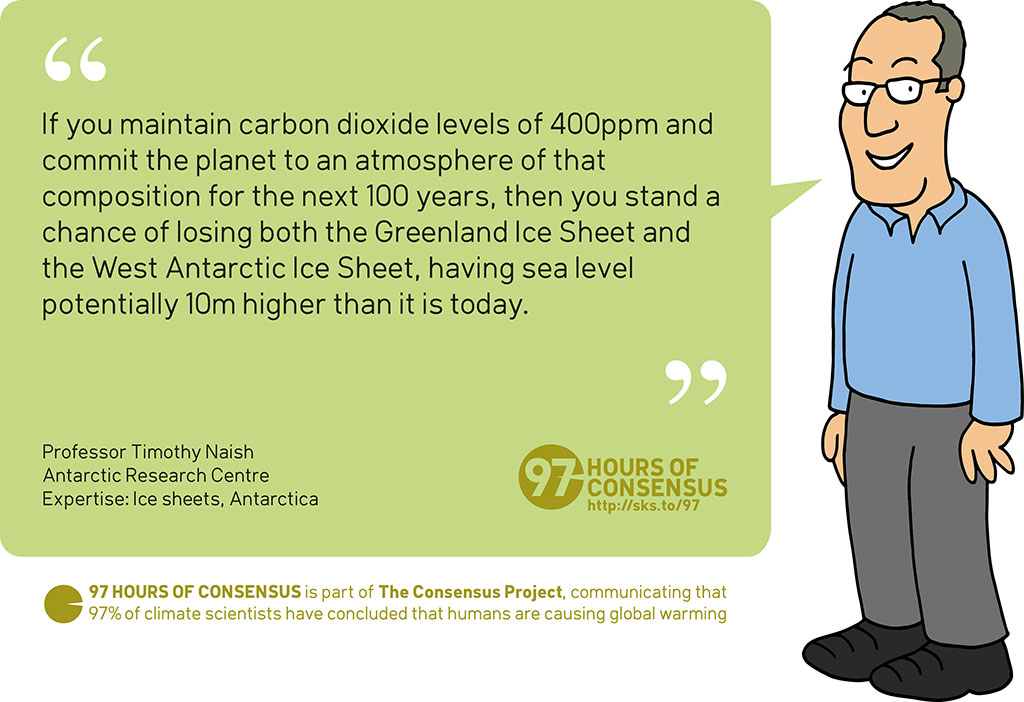
Story of the Week... Toon of the Week... Coming Soon on SkS... Poster of the Week... Climate Feedback Reviews... SkS Week in Review... 97 Hours of Consensus...

Yay! It’s a new year!
But what does that mean, exactly?
The year, of course, is the time it takes for the Earth to go around the Sun, right? Well, not exactly. It depends on what you mean by “year” and how you measure it. This takes a wee bit of explaining, so if you're done kicking 2016 to the curb and trying your best to hope for 2017, sit back and let me tell you why we have a new year at all.
Happy New Tropical Earth Orbital Period! Kinda! by Phil Plait, Bad Astronomy, Slate, Jan 1, 2017
2016 is about to cap off the hottest year on record for the third straight year, a remarkable streak fueled primarily by the excess heat trapped in Earth’s atmosphere by ever-rising levels of greenhouse gases.
While that streak is expected to end, in part because of the demise of one of the strongest El Niños on record, 2017 is still expected to be among the hottest years in more than 130 years of record keeping, according to a forecast from the U.K. Met Office.

The U.K. Met Office's forecast for 2017's global annual average temperature. Credit Met Office
Because of global warming, “each new year is basically predestined to be among the warmest on record,” Deke Arndt, chief of the monitoring branch of the U.S. National Centers for Environmental Information, said in an email.
Because of global warming, 16 of the 17 hottest years on record have occurred this century, the only exception being the strong El Niño year of 1998.
Each year, the Met Office uses climate models to forecast the global annual average temperature for the coming decade, in an effort to improve shorter-term climate forecasting of features like hurricane season activity and droughts.
Forecasters expect 2017’s temperature to fall between 1.13°F (0.63 °C) and 1.57°F (0.87 °C) above the 1961-1990 average.
Heat Is On for 2017, Just Not Record-Setting by Andrea Thompson, Climate Central, Dec 30, 2016

Hat tip to I Heart Climate Scientists.

Hat tip to I Heart Climate Scientists.
[To be added]

Quote derived with from:
"If you maintain carbon dioxide levels of 400ppm and commit the planet to an atmosphere of that composition for the next 100 years, then you stand a chance of losing both the Greenland Ice Sheet and the West Antarctic Ice Sheet, having sea level potentially 10m (higher) than it is today."
High resolution JPEG (1024 pixels wide)
Posted by John Hartz on Sunday, 1 January, 2017
 |
The Skeptical Science website by Skeptical Science is licensed under a Creative Commons Attribution 3.0 Unported License. |